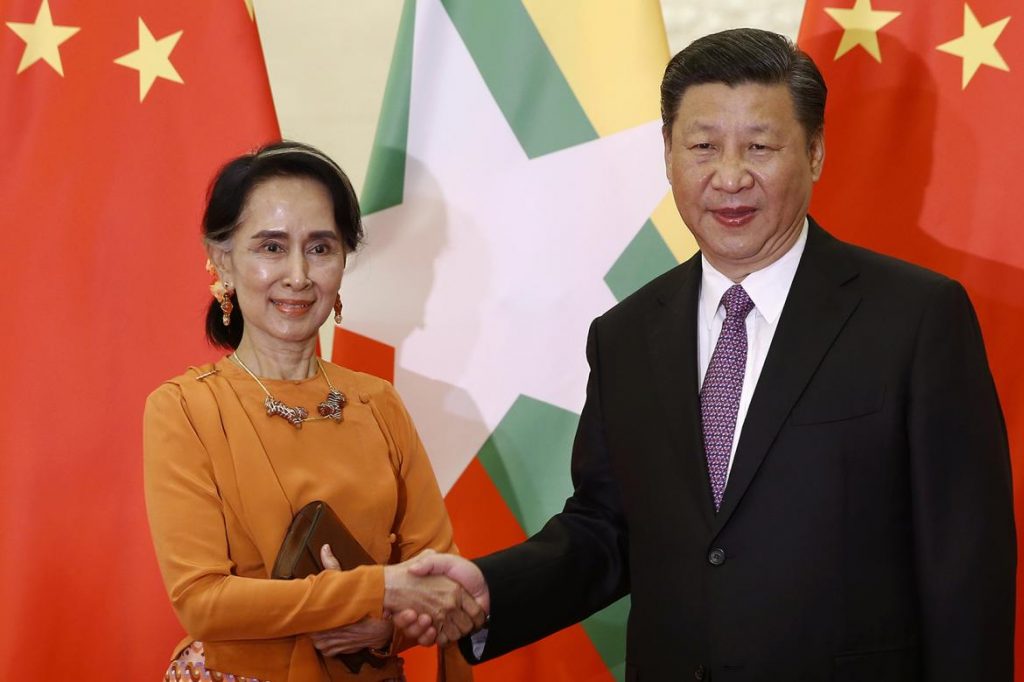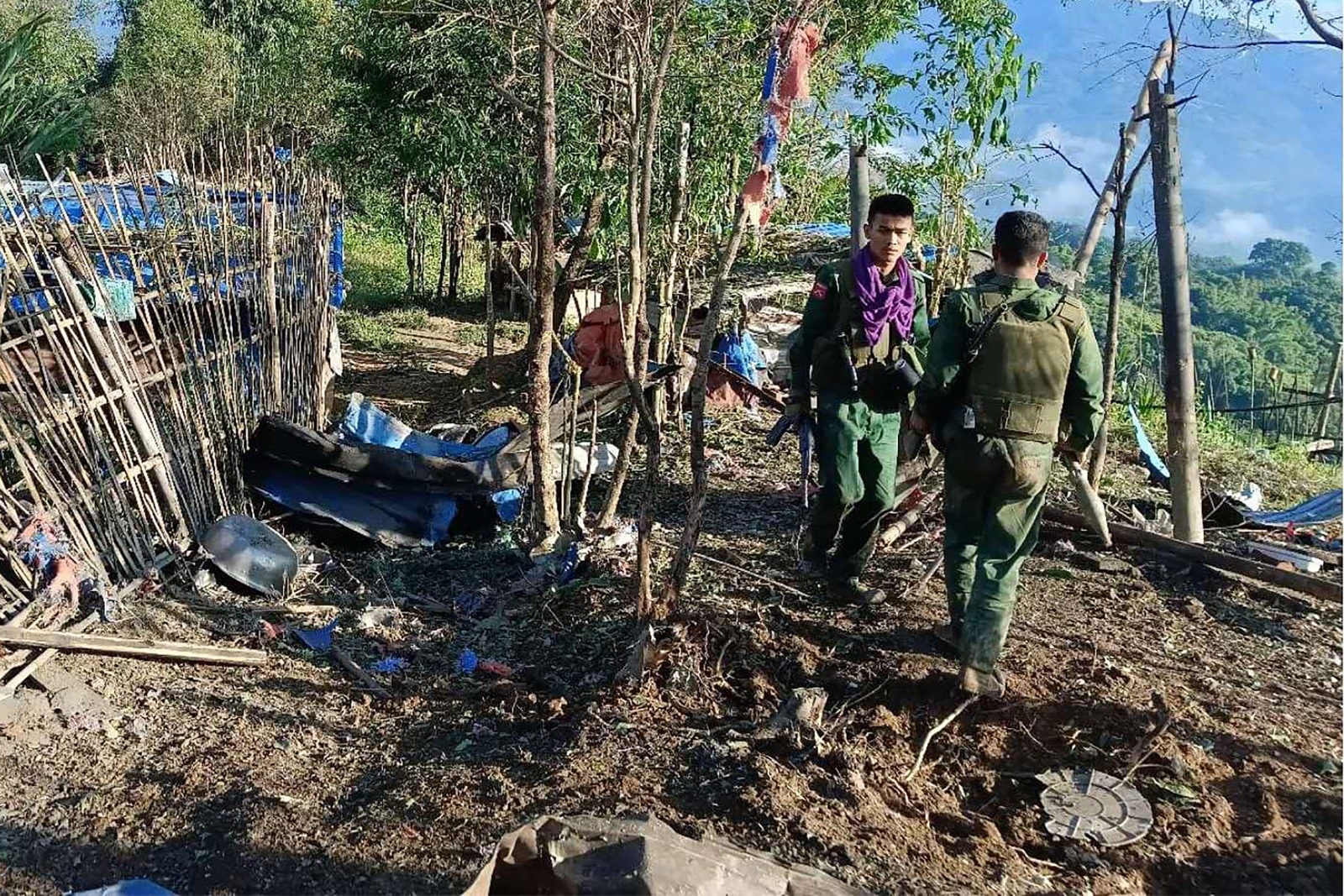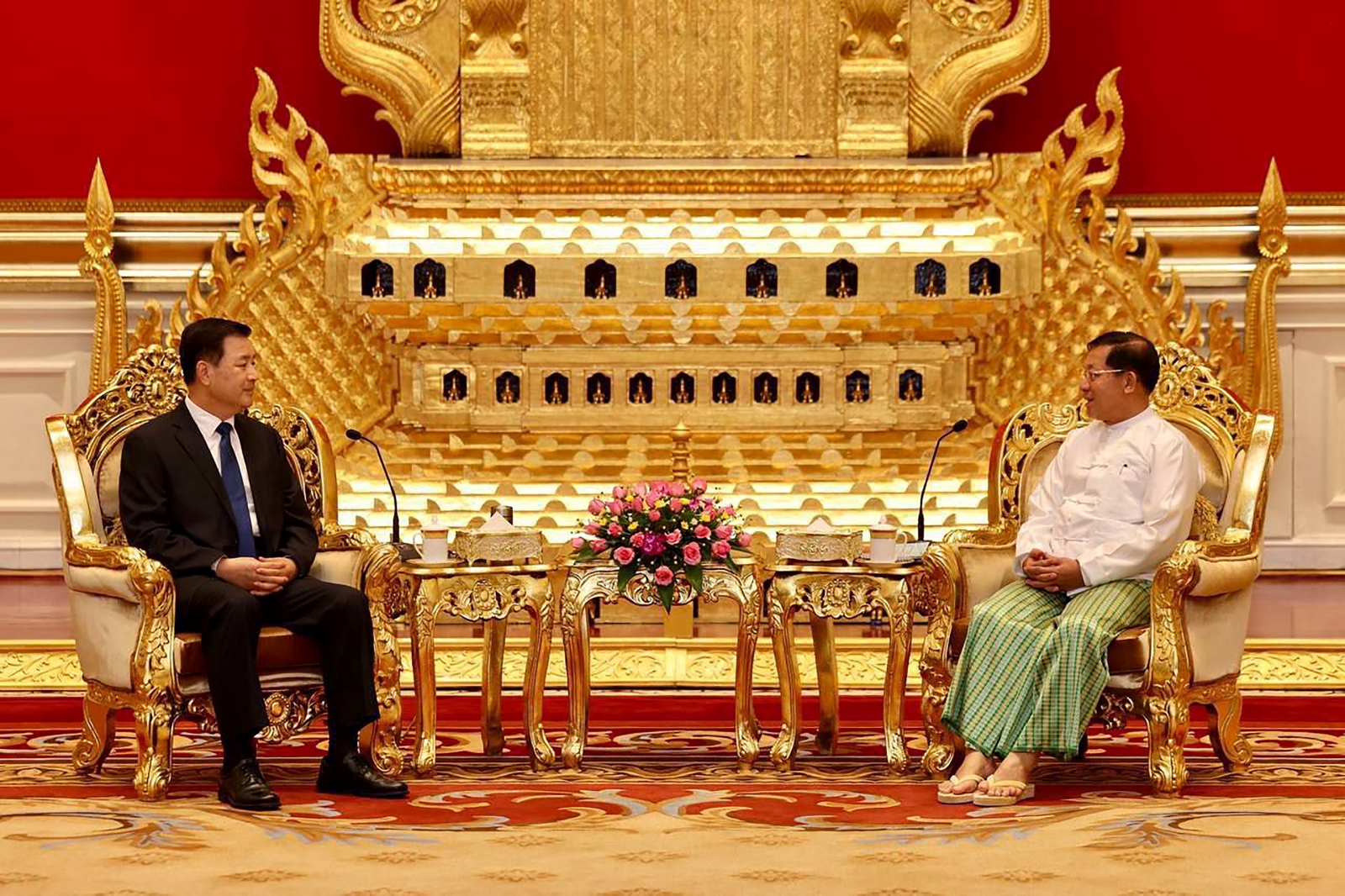At the summit hosted by Beijing last month to promote its plan for a new Silk Road, Myanmar and China signed five agreements and two are of particular economic significance.
By SITHU AUNG MYINT | FRONTIER
STATE COUNSELLOR Daw Aung San Suu Kyi was among about 30 heads of government or state who attended a summit held in Beijing last month to promote President Xi Jinping’s ambitious plan for a new Silk Road.
During the summit on May 14 and 15, Aung San Suu Kyi held separate meetings with Xi – who launched what China formally calls the Belt and Road Initiative in 2013 to expand trade links with Asia, Africa and Europe – and Premier Li Keqiang.
The state counsellor also signed five bilateral memoranda of understanding with China, of which two are especially interesting. One was to establish a border economic zone and the other was for cooperation within the framework of the Silk Road Economic Belt and 21st Century Maritime Silk Road initiative, which has implications for projects at Kyaukphyu in Rakhine State.
What is the significance of these two agreements and what economic impact will they have on Myanmar?
Support more independent journalism like this. Sign up to be a Frontier member.
Reports in the Myanmar media made no mention of a location for the proposed border economic zone.
However, China’s state-run Global Times on May 17 quoted Mr Zhou Rong, a senior research fellow at the Chongyang Institute for Financial Studies at Renmin University of China in Beijing, as saying it was expected to be established on the Yunnan Province-Kachin State border.
Zhou said the likely location was the border gate at Huoqiao in western Yunnan’s Tengchong County, opposite the Kan Pike Tee border trade post in Kachin, about 70 kilometres east of the state capital, Myitkyina.
China has been preparing for many years to establish a border trade zone in the area and has built a modern trade centre at Huaqiao.
Towns on the Chinese side of the border have prospered from the trade in jade and timber from Myanmar. To facilitate the trade, an all-weather road was built in recent years to link Waingmaw, across the Ayeyarwady River from Myitkyina, with Kan Pike Tee.
(In December 2015, the government was reported to have closed the Kan Pike Tee border post to vehicle and machinery imports in a move that followed claims about illegally imported equipment being used at the jade mines at Hpakant).
The road connecting Myitkyina with Mandalay via Sagaing Region is not in good condition, making it difficult to transport goods to Kachin State. If a border economic zone was developed at Kan Pike Tee-Houqiao, China would be sure to benefit through increased exports.
But the Myanmar side of the border lacks stability because of fighting between the Tatmadaw and the Kachin Independence Army. For both countries to profit from a border economic zone, much preparation will be needed on the Myanmar side.
The new Silk Road cooperation agreement focused on Kyaukphyu involves its deep water port, special economic zone, the gas and oil pipelines that snake across the country to Yunnan, and plans for a railway.
Long before China was touting Xi’s Belt and Road Initiative, it had sought access to the Indian Ocean across Myanmar for energy security reasons.
The pipelines are transporting oil and gas to China as part of a strategy to reduce dependency on supplies shipped through the Strait of Malacca.
In December 2015, consortia headed by China’s CITIC Group Corporation won separate tenders to develop a deep water port and an industrial area as part of plans to create a special economic zone at Kyaukphyu.
Plans by China to sponsor a US$20 billion project to build a road and railway linking Kyaukphyu and the Yunnan capital, Kunming, have stalled, partly due to opposition in Myanmar over a range of concerns, ranging from security issues to community consultation.
There is no doubt that the huge infrastructure plans focused on Kyaukphyu, if they are all realised, will generate huge benefits for China.
The big question for Myanmar is how much control it will have over the infrastructure and how beneficial it will be for the country.
There is not necessarily any disadvantage to Myanmar to have such trade agreements with other countries. However, the benefits they generate will be dependent on the government’s negotiating ability and long-term thinking, as well as the competitiveness, transparency and accountability of Myanmar companies.







